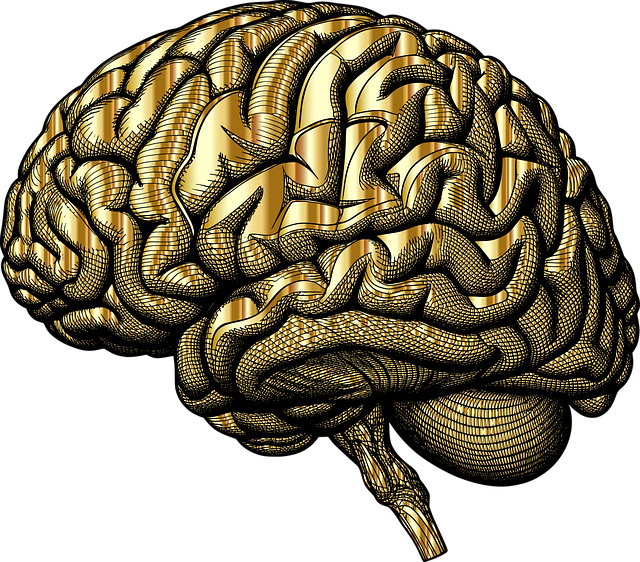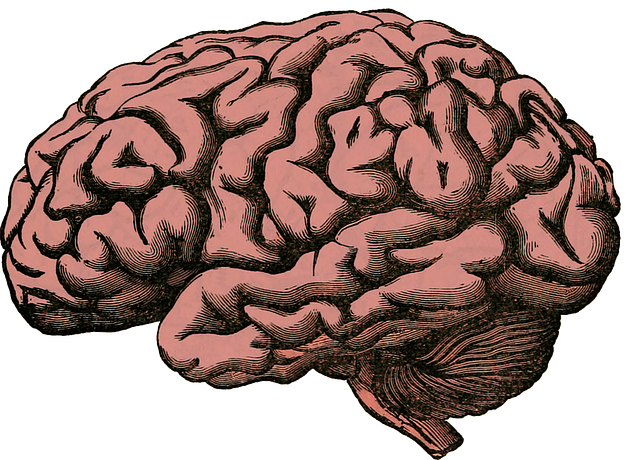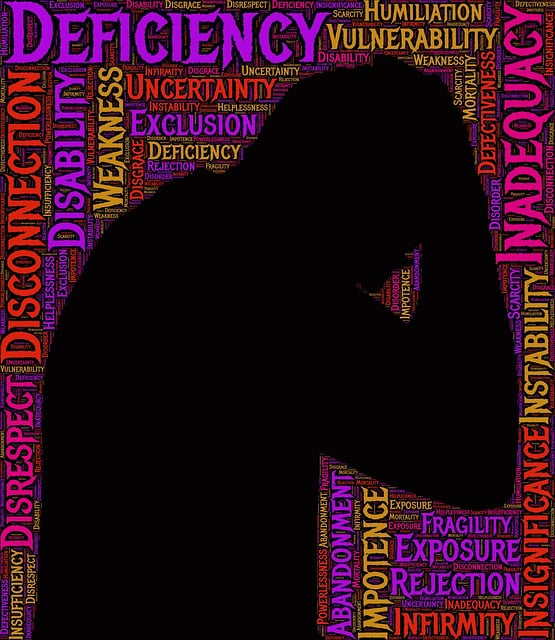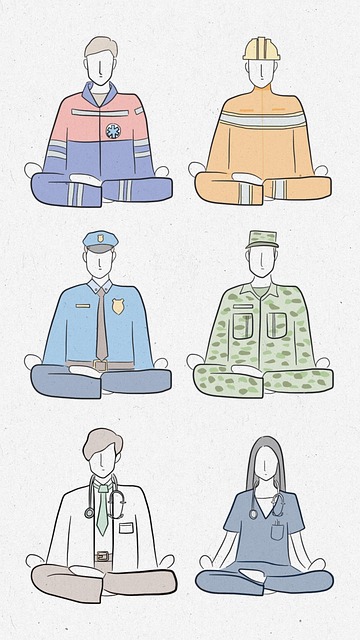In today's fast-paced world, mental health issues are prevalent in Highlands Ranch communities, driving demand for comprehensive mental wellness programs. Dialektical Behavioral Therapy (DBT), initially designed for borderline personality disorder, offers a powerful solution. A well-structured DBT curriculum equips individuals with emotional intelligence, coping skills, and self-care practices through group discussions, role-playing, and skill-building workshops. This approach promotes positive thinking, fosters resilience, and enhances overall well-being. By combining personal therapy, group sessions, and community outreach, DBT in Highlands Ranch provides a transformative path to emotional health and longevity. Success is measured through participant feedback, stress reduction, and sustained engagement in self-care practices.
Mental health education programs play a pivotal role in fostering well-being, especially with the growing recognition of mental health as a societal priority. This article explores the design of an effective program, focusing on Dialectical Behavioral Therapy (DBT), a evidence-based approach. We delve into key components, including techniques from the Highlands Ranch DBT model, and provide strategies for implementation and measurement of success. By understanding these elements, educators can create impactful programs that promote mental resilience and long-term well-being.
- Understanding the Need for Mental Health Education Programs
- Key Components of an Effective Dialectical Behavioral Therapy (DBT) Curriculum
- Incorporating Highlands Ranch DBT Techniques into Program Design
- Strategies for Implementing and Delivering the Program
- Measuring Success and Ensuring Long-Term Impact
Understanding the Need for Mental Health Education Programs

In today’s fast-paced world, mental health issues have become increasingly prevalent, affecting individuals across various demographics. This has led to a growing recognition of the need for comprehensive mental health education programs, especially in communities like Highlands Ranch where access to specialized therapy, such as Dialectical Behavioral Therapy (DBT), plays a crucial role. The high demand for these services underscores the importance of integrating mental wellness into everyday life.
Program design should focus on empowering individuals with essential coping skills and self-care routines, fostering positive thinking as a cornerstone of overall well-being. By implementing evidence-based strategies, such as those taught in DBT, education programs can help participants navigate their emotional landscapes effectively. This proactive approach not only addresses current mental health challenges but also equips people with the tools to build resilience and maintain better mental health in the long term.
Key Components of an Effective Dialectical Behavioral Therapy (DBT) Curriculum

An effective Dialectical Behavioral Therapy (DBT) curriculum for Highlands Ranch dialectical behavioral therapy programs should incorporate several key components to ensure success in treating individuals facing complex emotional challenges. First and foremost, the program must provide a solid foundation of crisis intervention guidance, equipping participants with the skills to navigate intense emotions and distressing situations safely and effectively. By teaching mindfulness, distress tolerance, emotion regulation, and interpersonal effectiveness strategies, DBT helps individuals manage their emotional experiences and improve their overall well-being.
Additionally, fostering emotional intelligence is paramount. The curriculum should encourage self-awareness and understanding of one’s emotions, as well as empathy towards others. This promotes healthier relationships and enhances the individual’s ability to respond adaptively in various social contexts. Through group discussions, role-playing exercises, and skill-building workshops, participants in Highlands Ranch DBT therapy can develop confidence boosting strategies that empower them to lead more fulfilling lives.
Incorporating Highlands Ranch DBT Techniques into Program Design

Incorporating Highlands Ranch Dialectical Behavioral Therapy (DBT) techniques into mental health education program design offers a transformative approach to fostering resilience and emotional well-being. DBT, originally developed for individuals with borderline personality disorder, has evolved to become a powerful tool in promoting mental wellness. By integrating its core components, such as mindfulness, distress tolerance, emotion regulation, and interpersonal effectiveness skills, programs can provide participants with practical strategies for managing emotions, reducing suicidal behaviors, and improving overall quality of life.
Highlands Ranch DBT techniques are particularly effective in building confidence and encouraging self-reflection through mental wellness journaling exercises. This process allows individuals to gain insights into their thoughts and feelings, track progress over time, and develop coping mechanisms tailored to their unique needs. Additionally, the structured guidance offered by these techniques promotes resilience, enabling participants to navigate challenges with greater ease and adaptability.
Strategies for Implementing and Delivering the Program

Implementing a mental health education program requires a strategic approach to ensure its effectiveness and accessibility. In Highlands Ranch, Dialectical Behavioral Therapy (DBT) has proven successful in addressing complex emotional challenges. When designing the delivery of this therapy, it’s essential to consider both personal and group settings. Group sessions facilitate peer support and provide opportunities for practicing communication strategies, an integral component of DBT, fostering a sense of community.
Incorporating interactive activities and role-playing exercises tailored to the highland Ranch DBT framework allows participants to internalize Mind Over Matter principles. Simultaneously, individual therapy sessions enable personalized risk assessments for mental health professionals to offer targeted interventions. This dual approach ensures that each participant receives comprehensive care while fostering a supportive environment conducive to learning and growth.
Measuring Success and Ensuring Long-Term Impact

Measuring success and ensuring long-term impact are crucial aspects of designing any mental health education program, including those inspired by Highlands Ranch Dialectical Behavioral Therapy (DBT). One effective way to gauge progress is by collecting participant feedback through surveys and interviews. This qualitative data provides insights into how the program has influenced individuals’ coping mechanisms, stress reduction methods, and overall well-being. By identifying common themes and areas of improvement, organizers can refine and adapt the curriculum for better results.
Moreover, the long-term success of a mental health initiative can be evaluated by tracking participants’ sustained engagement in self-care practices and their ability to apply learned skills in various aspects of life. For instance, implementing a Community Outreach Program that includes regular Stress Management Workshops could facilitate ongoing support and encourage individuals to maintain their progress. Over time, this collective effort may lead to reduced stress levels and improved mental resilience within the community, emphasizing the program’s lasting impact.
Mental health education programs, particularly those incorporating Highlands Ranch Dialectical Behavioral Therapy (DBT) techniques, can significantly enhance individuals’ well-being and resilience. By understanding the need for such programs, designing curricula with key DBT components, and effectively implementing strategies for delivery, we can create impactful initiatives. Measuring success through long-term outcomes ensures that these programs not only provide immediate support but also foster lasting positive changes. Incorporating Highlands Ranch DBT techniques into mental health education paves the way for a healthier, more equipped community.











